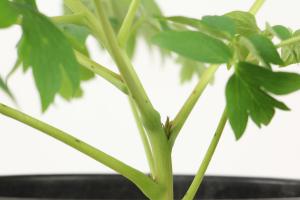When to Plant Olive Trees in the UK
Olive trees are becoming increasingly popular in the UK as gardeners look for unique and exotic plants to grow. However, olive trees have specific planting requirements and times that need to be considered for optimal growth and yield. In this article, we will discuss when to plant olive trees in the UK.
Climate Requirements for Olive Trees
Olive trees are native to the Mediterranean and require a warm, sunny, and mild climate to grow well. They are able to tolerate dry conditions and are fairly pest-resistant, which makes them suitable for locations with fewer pests and diseases.
The UK climate can be challenging for olive trees as it is much cooler and wetter than the Mediterranean. Therefore, it is important to choose a location that is sheltered from the wind and has plenty of sun exposure. South-facing locations are ideal, while north-facing gardens can be too cold and damp for olive trees. Areas with high rainfall should be avoided or compensated for by providing proper drainage.
Planting Olive Trees in the UK
Olive trees can be planted in the UK during two specific times of the year: late spring and early autumn. While olive trees can be planted at any time of the year, these two periods are the best times for planting in the UK due to the warmer soil and air temperatures.
When planting olive trees, it is important to choose a well-draining soil that is rich in organic matter. Olive trees prefer soil with a pH of 6.5 to 8.5, which is slightly alkaline, so it may be necessary to add lime if the soil is acidic. Adding compost or manure to the soil before planting can also help to provide the tree with nutrients and improve drainage.
Caring for Olive Trees in the UK
Once the olive trees have been planted, it is important to care for them properly to ensure they grow and produce well. Olive trees require water when they are young, but become more drought-tolerant as they mature. However, during hot and dry spells, it is important to water the trees to prevent them from becoming stressed.
To improve the yield of your olive trees, it is recommended to fertilise them with a balanced fertiliser during the growing season. Pruning is also important and should be done in early spring to remove dead and diseased wood, as well as any branches that are crossing or rubbing against each other. This will help to improve air flow through the tree and prevent pests and diseases from spreading.
In Conclusion
Olive trees can be a beautiful and unique addition to a UK garden, but they require careful planning and consideration when it comes to planting and care. Knowing when to plant your olive trees, choosing the right location, and providing proper care will help ensure that your trees thrive and produce a bountiful harvest.

 how many times do yo...
how many times do yo... how many planted tre...
how many planted tre... how many pine trees ...
how many pine trees ... how many pecan trees...
how many pecan trees... how many plants comp...
how many plants comp... how many plants can ...
how many plants can ... how many plants and ...
how many plants and ... how many pepper plan...
how many pepper plan...































